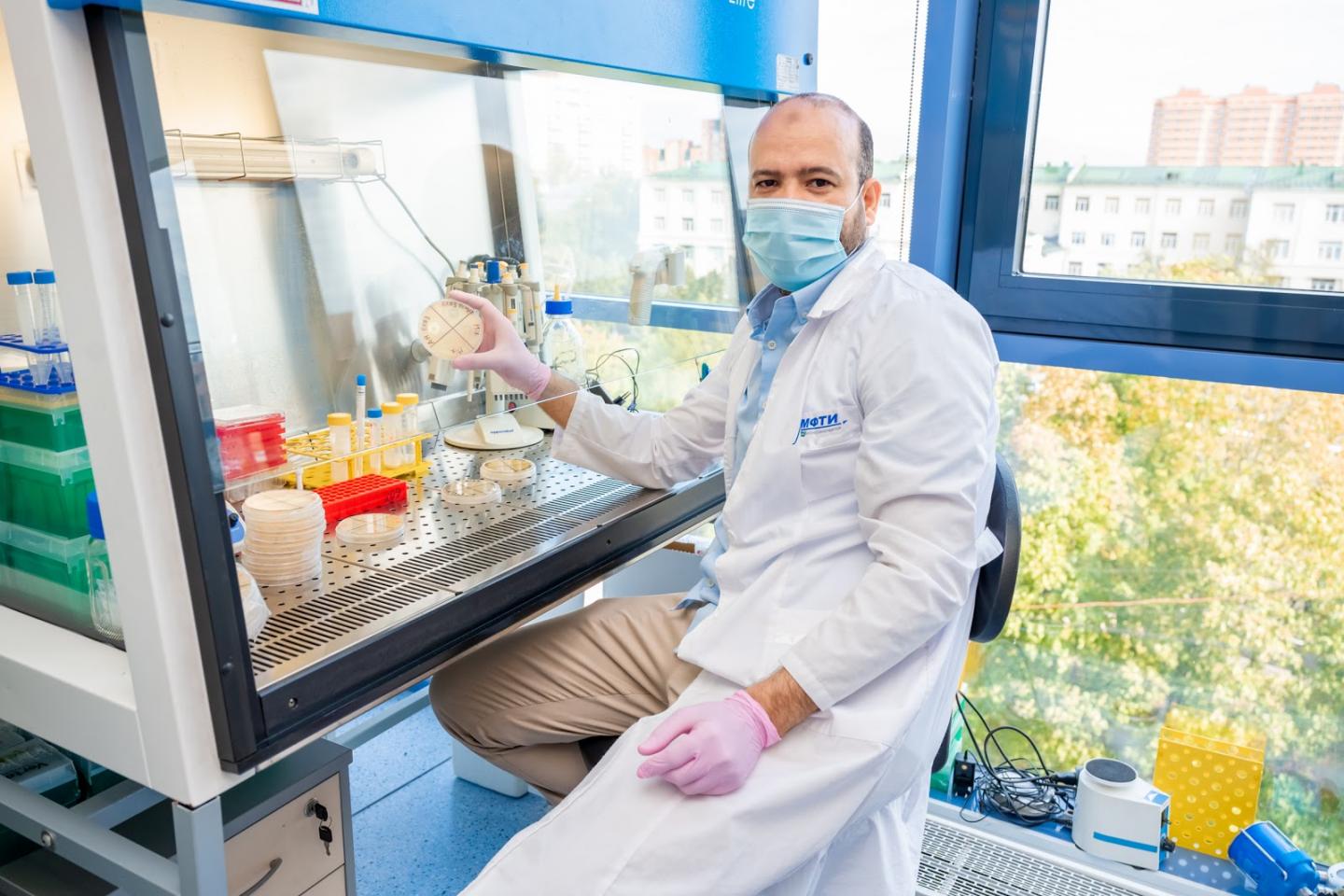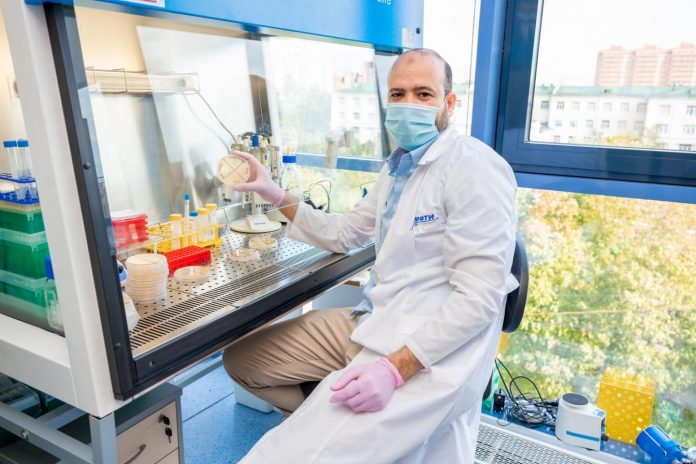
Photo: MIPT doctoral student Heakal Mohamed holding a Petri dish used in the experiment.
view more
Credit Image: Natalia Arefieva/MIPT Press Office
Biotechnologists from MIPT have developed a method for extracting the active constituents from the fat of black soldier fly larvae. These compounds possess unique antimicrobial properties and can destroy bacteria that cause farm crop diseases and are resistant to antibiotics. The study was published in Microorganisms.
Bacteria cause an essential subset of the diseases affecting farm crops. The standard way of combating them is with antibiotics, but their yearslong overuse has led to microbes developing resistance. Besides that, antibiotics do not always target harmful bacteria only. They may also kill the microbes that are beneficial to plants.
In a search for an alternative way of protecting plants from pathogenic bacteria, researchers from MIPT turned to flies of the species Hermetia illucens, commonly known as black soldier flies. The team’s hypothesis was that the constituents of the fly larvae fat could be an antimicrobial agent.
Black soldier flies originate from South America but are also found in the wild across the globe. The larvae of H. illucens are mass-produced in insect factories to feed livestock and fish. It is mainly due to larvae having an unpretentious diet and accumulating much protein and fat under a chitinous cover. The animals are fed with either larva without prior processing or in the form of a protein extract produced in multiple ways.
In their study, MIPT biotechnologists used the larvae fat obtained by mechanical squeezing under a press. To extract its biologically active constituents, the team tested 20 different organic solvents attempting to find the one best suited for the purpose. Eventually, MIPT PhD student Heakal Mohamed and the project’s principal investigator Elena Marusich selected a solving agent composed of water, methanol, and hydrochloric acid. It enabled the extraction of more than 4% of the active fatty acids contained in the larvae fat. Methanol facilitates the dissolving of fatty acids in water, and acidification stabilizes the resulting mixture. The technique proved 50 times more effective than all previously available methods.
“We found a way to mix the solvents in the right proportions for extracting the chemical compounds of interest,” said Elena Marusich, deputy head of the Laboratory of Innovative Drugs and Agricultural Biotechnology at MIPT. “The resulting extract — called AWME — has antimicrobial properties. We have shown it to be more effective than antibiotics, so it could virtually replace antibiotics in agriculture for fighting phytopathogenic bacteria.”
The researchers tested the antibacterial effect of their extract on five strains of pathogenic bacteria affecting plants. Experiments included growing bacteria on the surface of agar-containing Petri dishes. The researchers placed disks of filtering paper soaked in AWME of a specific concentration onto the growing bacterial lawn. The experiments revealed that harmful bacteria died in the presence of the fly fat extract.
The extract is stable enough to withstand prolonged storage in a refrigerator without losing its antimicrobial properties.
“A widespread use of our extract in agriculture will require additional experiments with other common plant pathogens, as well as research into the mechanisms underlying the extract’s antibacterial activity. We want to express our immense gratitude to Gennady Ivanov, a true enthusiast and pioneer of H. illucens larva cultivation in Russia, way off from the fly’s native South America. Gennady is the CEO of Biolaboratorium LLC, a resident of the Skolkovo Innovation Center, and the NordTechsad LLC, which received the 2019 Golden Autumn Award for the production of animal feed. His work and generosity made our research possible,” said Sergey Leonov, who heads the Laboratory for the Development of Innovative Drugs and Agricultural Biotechnology at MIPT.
###
The researchers acknowledge the support of the Ministry of Education and Science of the Russian Federation (Agreement No. 02.A03.21.0003 dated Aug. 28, 2013).
The Laboratory for the Development of Innovative Drugs and Agricultural Biotechnology is part of the School of Biological and Medical Physics at MIPT. The lab conducts fundamental and applied research into drug development in areas spanning oncology, longevity and neurodegenerative diseases, and agricultural biotechnology.
TDnews (tunisiesoir.com)















